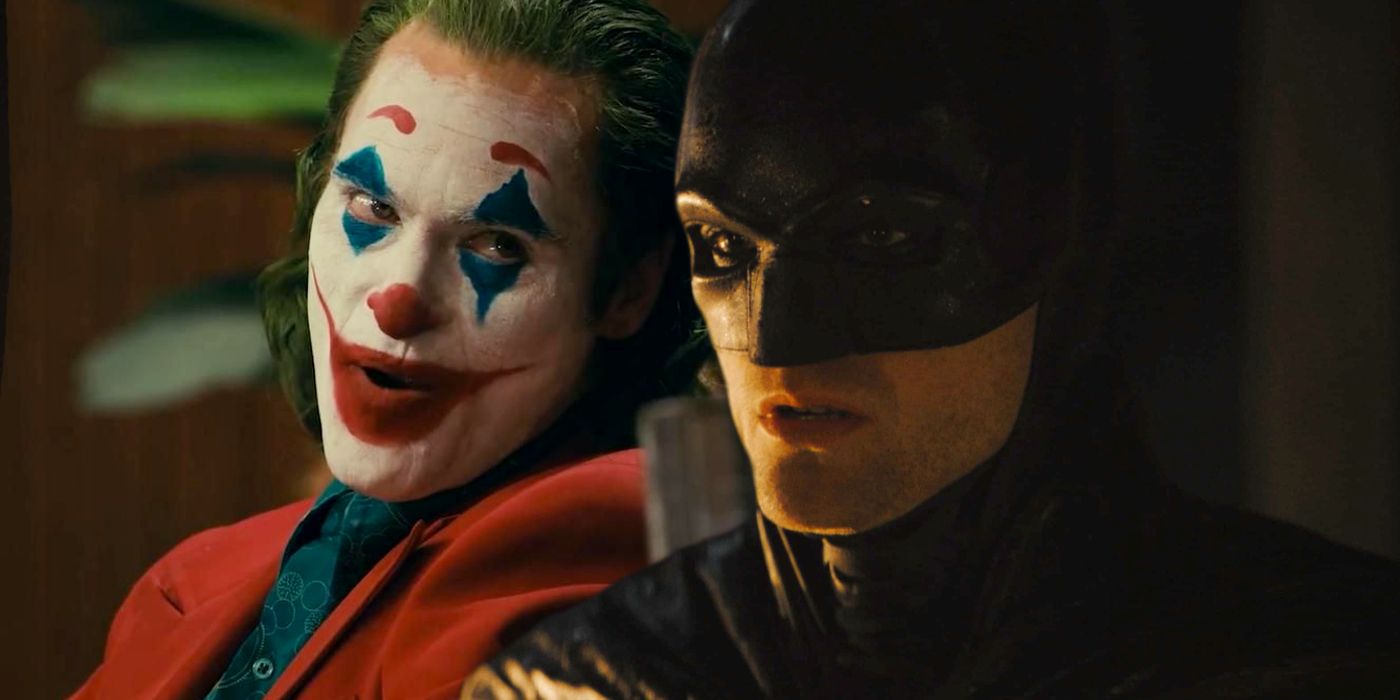Ever since just after punk music's messy birth amid the ascent of the Ramones and the Sex Pistols in 1975, there have been punks accusing each other of not being punk enough. That accusation has been levied for pretty much every reason imaginable, but most commonly the cries of "sellout" have been linked to the music not being hard enough, which led to the genesis of pop punk.
While "real" or "traditional" punk music is generally steeped in anti-authoritarian and anti-establishment ideologies, its poppier cousin tends to take itself a little less seriously, and has since given birth to subgenres like skate punk and power pop. For all the name has been used derisively, though, there's no denying pop punk is a genre with mass appeal and decades of history, and pop punk is very much not dead. Here are some of the greatest albums in that history, from pop punk's earliest form to the peak of its heyday at the turn of the millennium.
10 Buzzcocks - Love Bites
United Artists, 1978
By the time English punks Buzzcocks started recording their second studio album Love Bites, they were already on their fifth lineup as a band after a year and a half of frantic touring. Having formed in the wake of newcomers the Sex Pistols, Buzzcocks were quick to put their own spin on punk rock's nascent sound, eschewing the Sex Pistols' biting political satire in favor of self-deprecating lyrics about adolescence and love.
Love Bites was the highest-charting Buzzcocks album, and its only single, "Ever Fallen In Love (With Someone You Shouldn't've)," was their most successful single. With lyrics vaguely inspired by a line in the 1955 film version of Guys and Dolls, it's a biting admission that even the supposed maturity of adulthood is no shield against the pain of falling in love.
9 Generation X - Generation X
Chrysalis Records, 1978
Another of the first generation of English punk groups, Generation X, formed in 1976 around a handsome young university drop-out named William Broad, after his first band, Chelsea fell apart. Taking a new name from the book Generation X, a 1964 exploration of England's youth cultures, Broad and his new band leaped onto the scene and made a splash as the first band to play at The Roxy, the London nightclub that would become a hub for English punks for years to come.
If Generation X's sound is familiar, that's likely because William Broad chose a stage name he felt was fitting for someone of his looks when he put his guitar down as Chelsea dissolved and his new band formed — Billy Idol. The "Dancing With Myself" superstar (although that song was actually a Generation X track first) would go on to start his solo career in 1981, but in '78 he was deep in it, working with his bandmates to churn out Generation X in only a week.
8 The Descendants - Milo Goes to College
New Alliance Records, 1982
Southern California punks the Descendents also came together in the late '70s, but it wasn't until the arrival of vocalist Milo Aukerman that they shifted from a heavily surf-rock style to the bite-size chunks of high-speed punk they became famous for. Aukerman only had a short tenure with the band, as even before recording the album he had already decided to pursue a degree in biochemistry at the University of California at San Diego, so Milo Goes to College was both a welcome and a departure for him.
While the band was unsure if Milo Goes to College would be successful due to their extremely different sound from the then-dominant English punk scene, it has since proven to be instrumental in defining pop-punk as a whole, ensuring the genre could never forget the SoCal garage scene at its roots. Since then, Milo Goes to College has appeared on rankings of essential alternative and punk albums by publications from LA Weekly to Kerrang!, and musicians such as the Foo Fighters' Dave Grohl and NOFX's Fat Mike have cited it as a major influence on them from an early age.
7 Green Day - Kerplunk!
Lookout! Records, 1992
Long before Green Day were international superstars or American idiots, they were a trio of angry teenagers from Northern California's East San Francisco Bay Area. Kerplunk! was their second studio album and last release on Lookout! Records, and the 50,000 copies it sold in its first year — a massive number at the time — led to a major label bidding war over the band. In 1993 they signed with Reprise and began recording Dookie, which would lead to huge commercial success for them, as well as their being blacklisted by the East Bay punk scene for selling out.
Before all the drama that came with Dookie, Green Day were the darlings of East Bay punk, playing packed shows at Berkeley's legendary Gilman Street club to throngs of adoring fellow teens. Kerplunk! encapsulated the angst growing among local youth, with numerous songs detailing the reality of living in the squalor of late '80s West Oakland. "Welcome to Paradise," one of Dookie's singles, was actually first recorded for Kerplunk!, and the earlier version's rawness, alongside other songs like "Christie Rd." and "Who Wrote Holden Caulfield?" evoke the street life ennui that Green Day's later albums became so detached from.
6 No Doubt - Tragic Kingdom
Trauma Records and Interscope Records, 1995
Anaheim ska-rockers No Doubt had a strained relationship with Interscope when it came time to return to the studio for their third outing. Their first self-titled release in 1992 had failed commercially from what they saw as a lack of support from label Interscope Records, while their second album The Beacon Street Collection (released independently due to Interscope further withdrawing support) sold over 100,000 copies. That success made Interscope eat their words and sign No Doubt for a third album through associated label Trauma Records.
Tragic Kingdom was a dynamite hit for No Doubt, further helping define the "SoCal sound" that was becoming so synonymous with the '90s punk scene. With a tighter, more produced sound than either of their previous releases, and multiple smash singles ("Just a Girl," "Spiderwebs," and "Don't Speak" in particular), this was the album that put No Doubt on the map; it's also therefore responsible for Gwen Stefani's solo pop career, but nobody's perfect.
5 Blink-182 - Dude Ranch
Cargo Music and MCA Records, 1997
San Diego-based skate punks Blink-182 had solid enough success with their first album, 1995's Cheshire Cat, that major label MCA signed them a year later, splitting the cost of producing Dude Ranch with their first label, indie distributor Cargo Music. With numerous problems plaguing the recording sessions, namely a particularly tight schedule, injuries to drummer Scott Raynor's feet, and vocalist Mark Hoppus straining his voice badly enough that they had to end the sessions a week early, it seemed like Dude Ranch was doomed from the start.
Yet the release of the album's first full single, "Dammit," would prove to be a breakout hit. Released as the 1997 Vans Warped Tour ended to build off the buzz of Blink's stint there, it helped push Dude Ranch to sell over a quarter-million copies in six months and made the band a household name (at least in houses that listened to punk music). Much like Green Day, it was their next album that would make Blink really take off, but Dude Ranch is the foundational work in their catalog that helped define them as a band.
4 Harvey Danger - Where Have All The Merrymakers Gone?
The Arena Rock Recording Company, 1997
In the mid-'90s, punk was very much a Californian thing, while further north in Seattle, Washington, it was the grunge scene that reigned supreme. Yet amid all the moodiness and flannel, a pair of University of Washington journalism students came together to start a band with a different kind of sound, selling their first demo tape for $3 a cassette at shows and slowly making a name for themselves as Harvey Danger in the local scene.
While recording a second demo failed to grab major label attention, it did catch the eye of Portland, Oregon's The Arena Rock Recording Company. Where Have All The Merrymakers Gone? was the result, and it sold decently at first, but as sales flagged, the band nearly broke up. On a whim, singer Sean Nelson sent a copy of Merrymakers to major Seattle radio station KNDD; their DJ Marco Collins decided to give one of its sillier songs a spin, and within weeks "Flagpole Sitta" was on top of the charts.
"Flagpole Sitta" was unfortunately a one-hit wonder for Harvey Danger, but it was one hell of a hit, topping at #3 on the Billboard Alternative Airplay chart and even charting in Europe and Iceland. It was used quite memorably in 1999's teen-sex comedy American Pie, although it wasn't released on the commercial soundtrack. Yet the rest of Merrymakers is at least as good as "Flagpole Sitta," proving that a one-hit wonder is more a factor of luck than artistic talent.
3 Eve 6 - Eve 6
RCA Records, 1998
SoCal punk trio Eve 6 smashed onto the charts in early '98, thanks in no small part to their single "Inside Out." The song's demo had gotten the attention of RCA Records producer Don Gilmore, who took the band under his wing for the recording of Eve 6 (and contributed some background vocals). "Inside Out" topped the Alternative Airplay charts and hit 28th on the Hot 100, and Eve 6 hit #1 on the Heatseeker Albums and #33 on the Billboard 200, proving this new crisp, laid-back but slightly manic approach to pop punk had a ready-made audience.
The lyrics on Eve 6 are quick, crackling with wit and disillusionment as vocalist Max Collins' spitfire delivery on "Inside Out" and "Tongue Tied" leave the listener no room to think. "Open Road Song" is an uptempo ode to every road trip where the car may not survive; "Leech" dismisses posers with a sardonic smile. While Eve 6 today are more known for Collins' witty social media presence than their music, their first release deserved every bit of praise it got, and more.
2 Lit - A Place in the Sun
RCA Records and Dirty Martini, 1999
Yet another SoCal powerhouse from the '90s pop punk scene, Orange County rockers Lit saw little success with their first album, 1997's Tripping the Light Fantastic, and ownership conflicts with label Malicious Vinyl saw them terminate their contract when the label lost its national distribution. In '98 they signed with RCA, also working with producer Don Gilmore to record A Place in the Sun.
A little earnest, a little horny, and a little intense, A Place in the Sun saw mixed critical reviews, but lead single "My Own Worst Enemy" was an undeniable hit, becoming 1999's top-played modern rock hit according to Billboard. Fuse's list of pop punk's greatest one-hit wonders praised the song, saying, "'My Own Worst Enemy' is self-deprecating and catchy, like all good sad boy band music. The opening line, Can we forget about the things I said when I was drunk? / I didn't mean to call you that' might be the most pop-punk verse ever written."
1 Screeching Weasel - Teen Punks in Heat
Panic Button Records, 2000
Chicago-based punks Screeching Weasel started with a far more hardcore sound when they released their first self-titled album in 1987. Over the following years, they started to shift towards more of a Ramones-esque sound, even participating in Selfless Records' Ramones cover project, releasing a full cover of 1976's Ramones in 1993. By the late '90s, Screeching Weasel had broken up twice, recorded ten studio albums, and completely stopped playing live. 2000 saw them record what was supposed to be their final album, Teen Punks in Heat.
Teen Punks in Heat was not, in fact, Screeching Weasel's final album. Although they broke up again in 2001, they reunited for a few live shows in 2004, broke up again, and then got back together in 2009, although at this point the only original member of the band remaining is frontman Ben Weasel.
While it's far from a flawless recording, Teen Punks was the perfect encapsulation of Screeching Weasel's sound over the years; it's a little Ramones, a little drunk off Malört, and a little frustrated with itself. The album's secret hit is the love song "I'll Stop the Rain," a surprisingly earnest ballad about cheering up an upset friend or lover.









 English (US) ·
English (US) ·